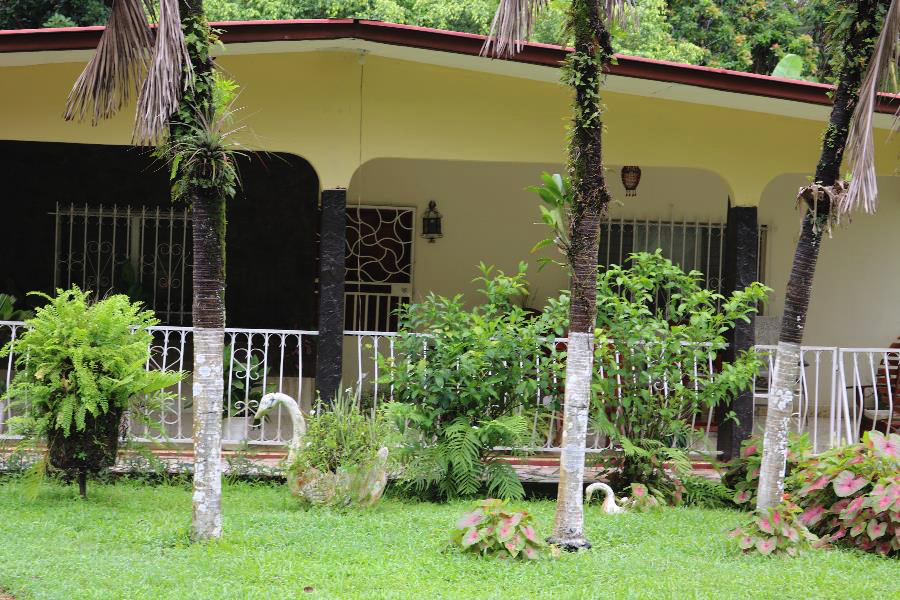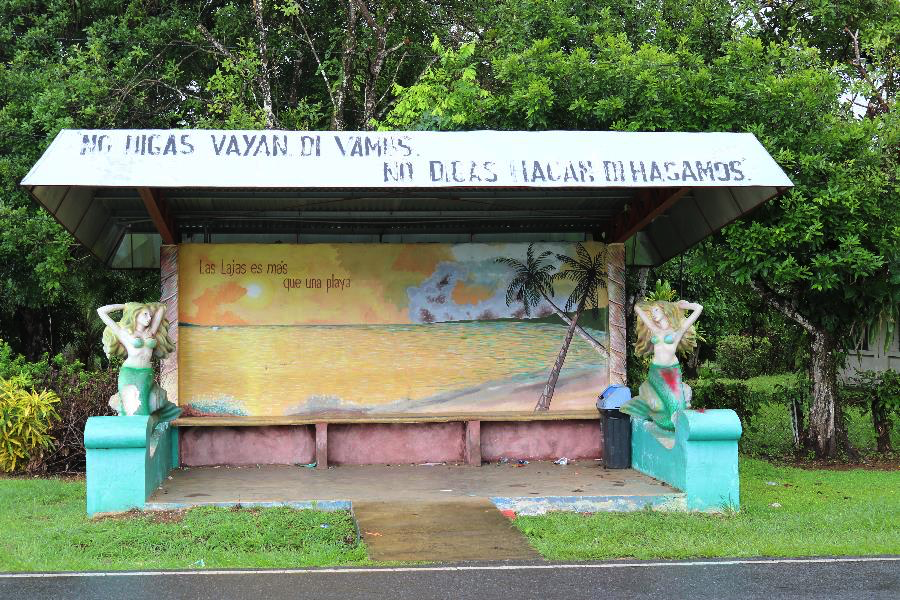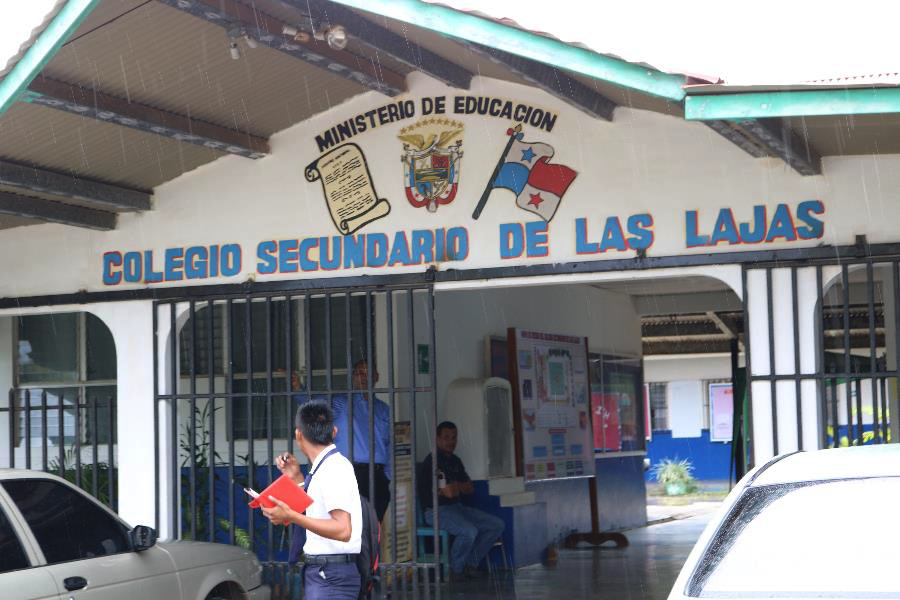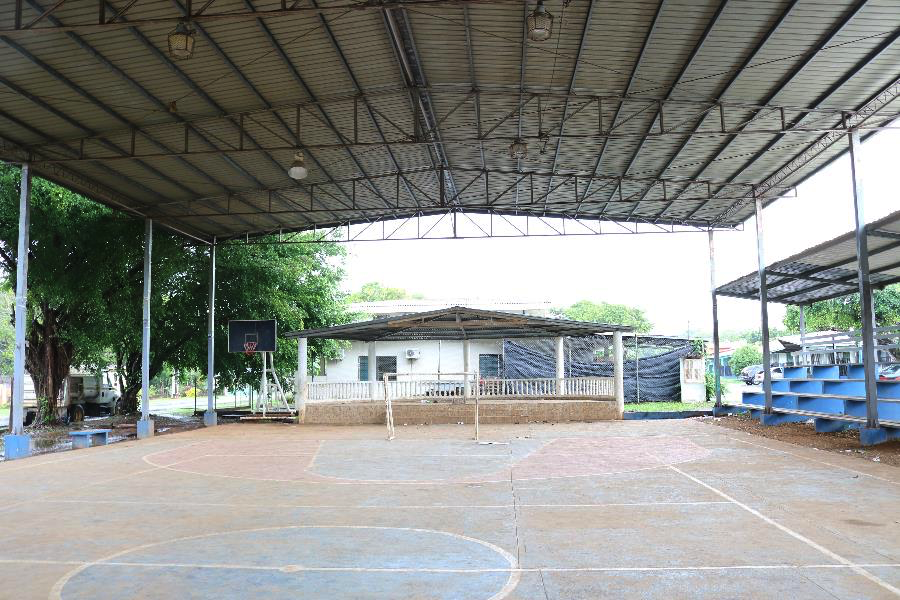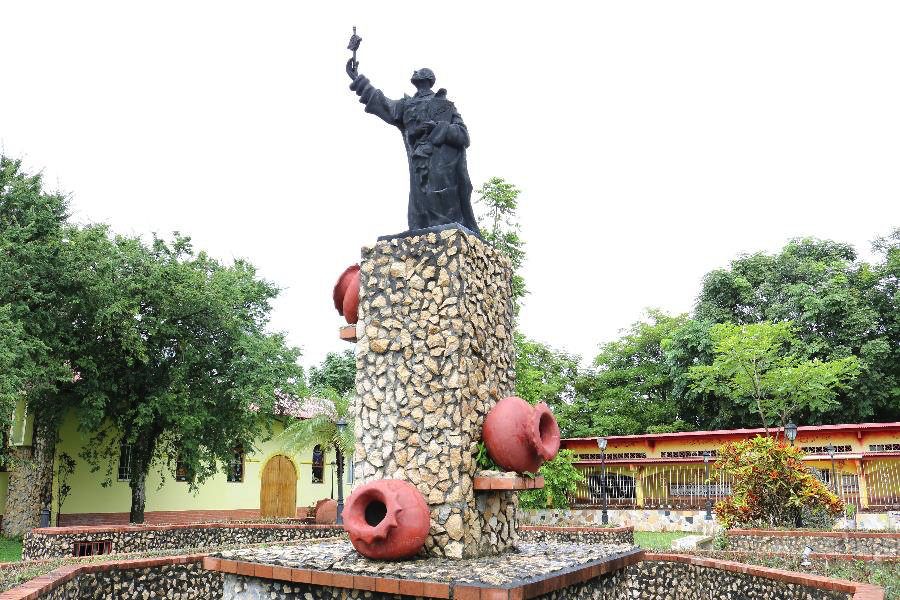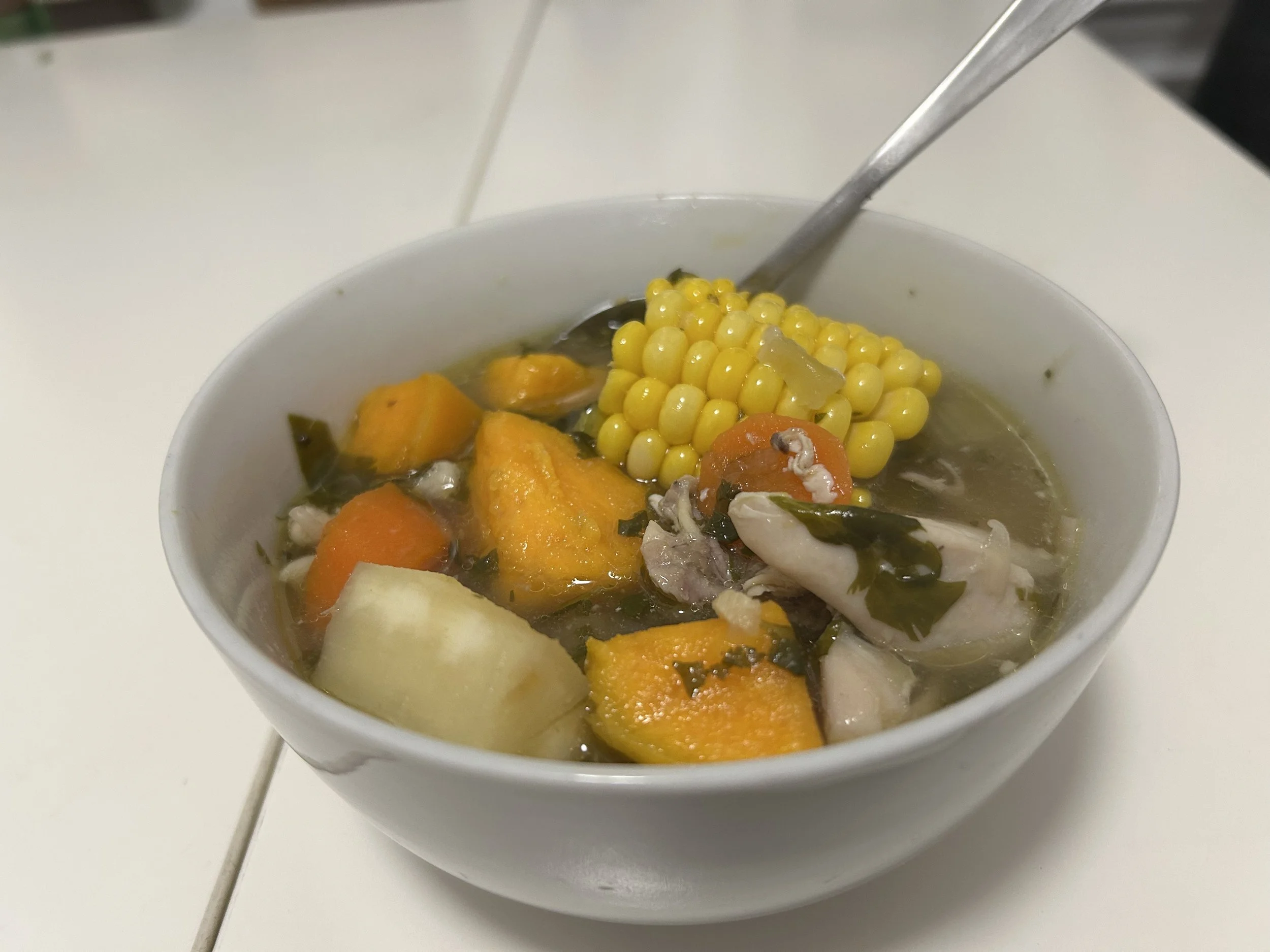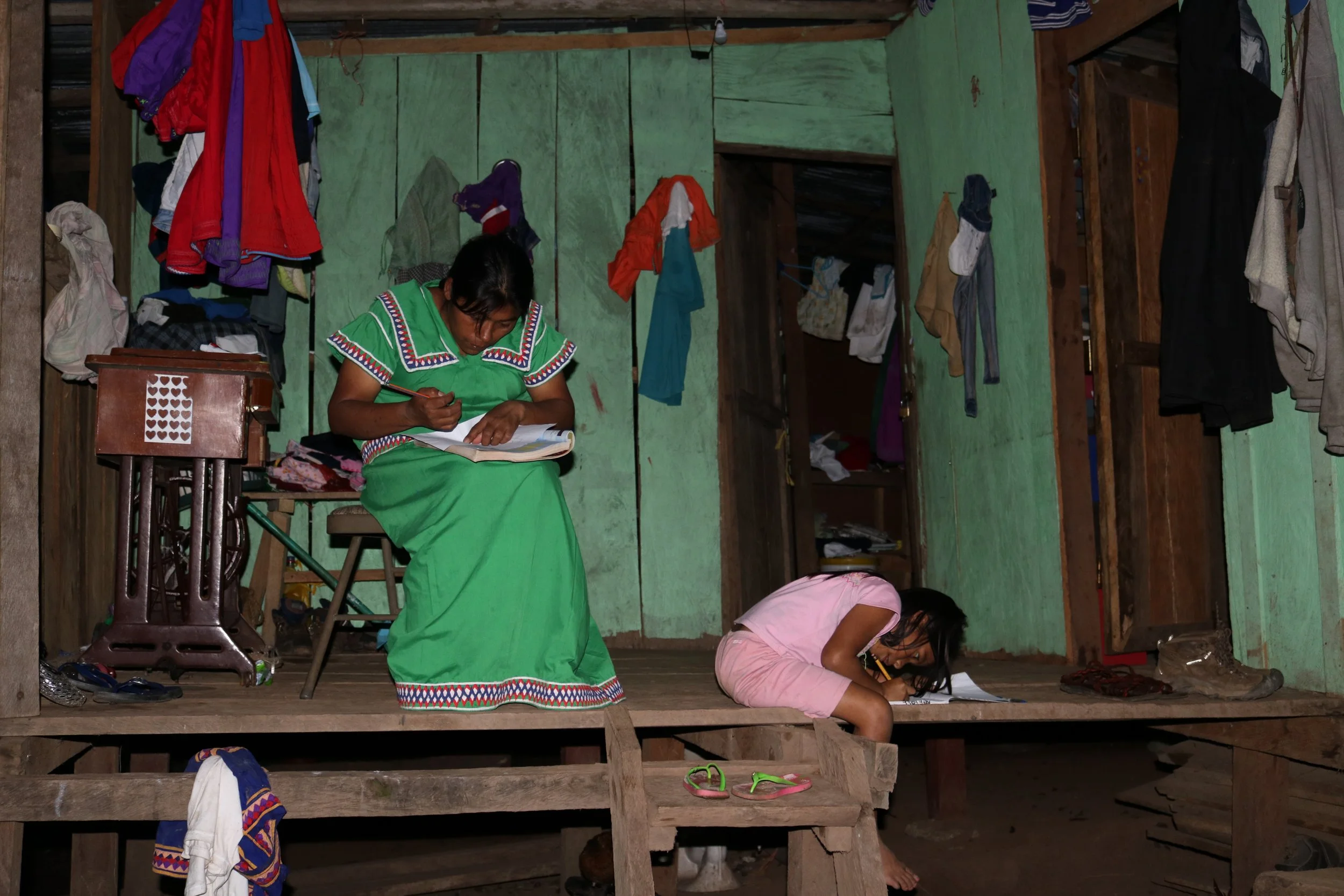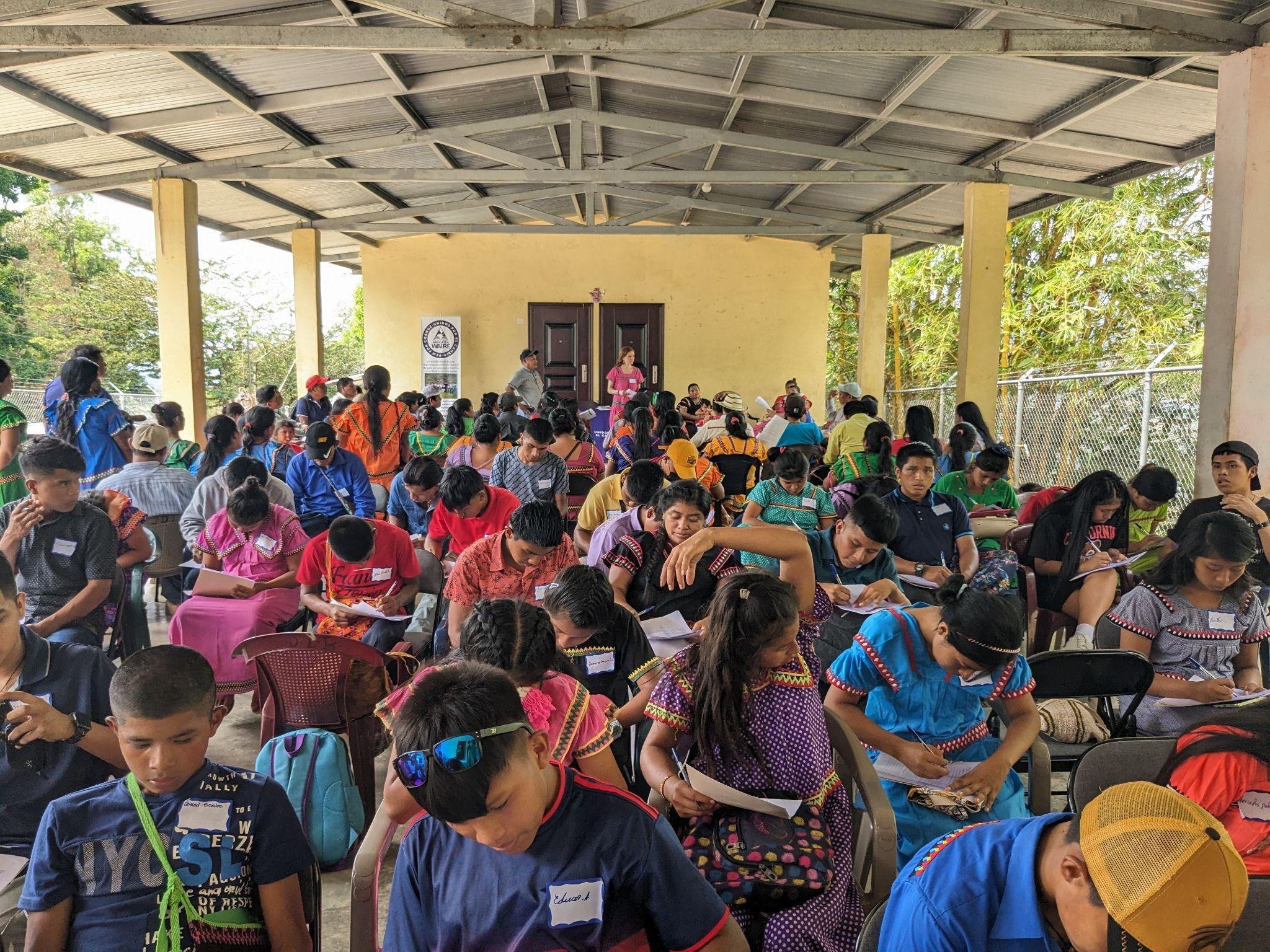This is Part 4 of a 5-part blog series detailing a Communications Fellowship trip to the Comarca in July, 2016. Check out Part 3 here:
After two weeks, countless interviews, and several harrowing journeys by chiva bus, I left the comarca for a town just across the Pan-American Highway called Las Lajas. I stayed there for a few days, doing laundry and checking in with internet. Being in Las Lajas after two weeks in the comarca was a huge shock. Next to the wooden houses, tin roofs, and dirt floors of the comarca, the pretty stone buildings, elaborate parks, and pristinely groomed lawns of Las Lajas felt exorbitantly wealthy, even excessive. How did two such distinct realities exist on either side of the highway? What led to these differences, and how could the towns I had visited in the comarca share in some of this apparent wealth?
One clear source of revenue for Las Lajas was tourism -- there are several hotels and hostels throughout the area, all within a few minutes’ drive of the beach. Tourism is one of the industries that Ramon had mentioned in his dream for economic development in his community, but without better roads, running water, or training in English and tourism, that possible revenue seemed closed off to his community. Several of our scholarship recipients attended school in Las Lajas, although I was there over a weekend and did not get to interview them during my stay. Walking around Las Lajas, surveying the schools and municipal buildings, I wondered how it must feel for some of our students to exist simultaneously in these two worlds. Several adults I interviewed had mentioned how difficult it was for Ngäbe students to stay in school after leaving to study outside the comarca for high school or for college. They had trouble keeping up because the educational standard was much lower in comarca, but the cultural differences could also make them feel very isolated.
My final stop before heading back to Panama City to fly home was David, the largest city in that area of Panama, a few hours’ bus ride from where the highway near San Felix and the beaches of Las Lajas. I wanted to see David because there was a university there where most Ngäbe university students went, the Autonomous University of Chiriqui (UNACHI). For several years an UNACHI student from another part of the comarca has been giving speeches at Few for Change’s induction ceremony. Luis Olmedo is legendary, both in his home community and among Few for Change students and volunteers.
The city bus in David, bound for the local college.
A view of UNACHI’s campus.
When I interviewed Olmedo in David, he took me to one of his classrooms at UNACHI, and brought with him his finished thesis, which he spent two year writing after graduating with his bachelor’s degree in biology. Speaking to Olmedo was one of the most incredible experiences of the trip, and was well worth the extra journey to David. Even after his explanations of finding funding, again and again, after believing it was nowhere to be found, I still do not fully understand how he was able to graduate. Olmedo explained that he is renowned in his village: the barriers to education in the comarca are so great that anyone who makes it through high school, let alone completing college, is heralded as a local celebrity. Although Few for Change did not directly fund Olmedo’s education, he is where he is today because of family and strangers alike who believed in him enough to help him get there. We hope to do the same for our students, with Olmedo’s example helping all of us see what is possible.
Olmedo shared this photo with me of himself (on the far left), with his family.
The greenhouse where Olmedo did his thesis research in medicinal native plants.
After sharing his life story, Olmedo stood for a portrait in the lab where he completed his undergraduate thesis. He is currently working on his Masters in Biology.


